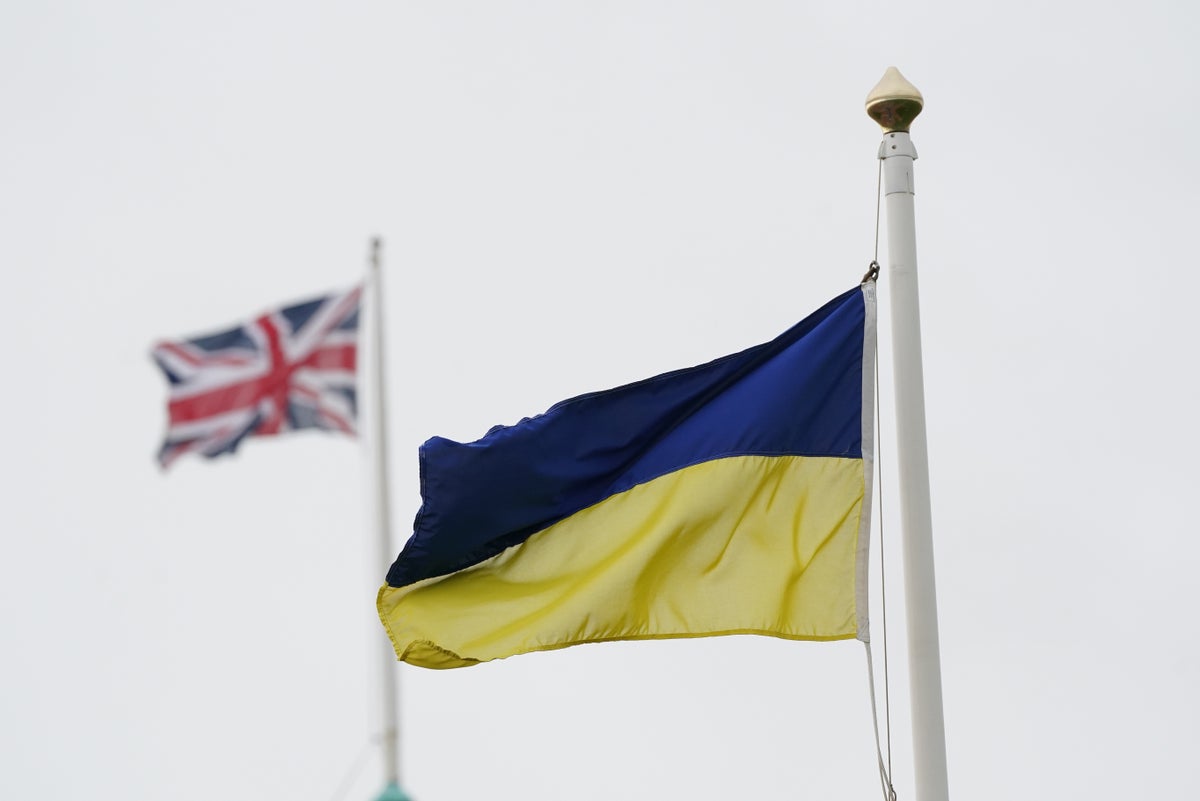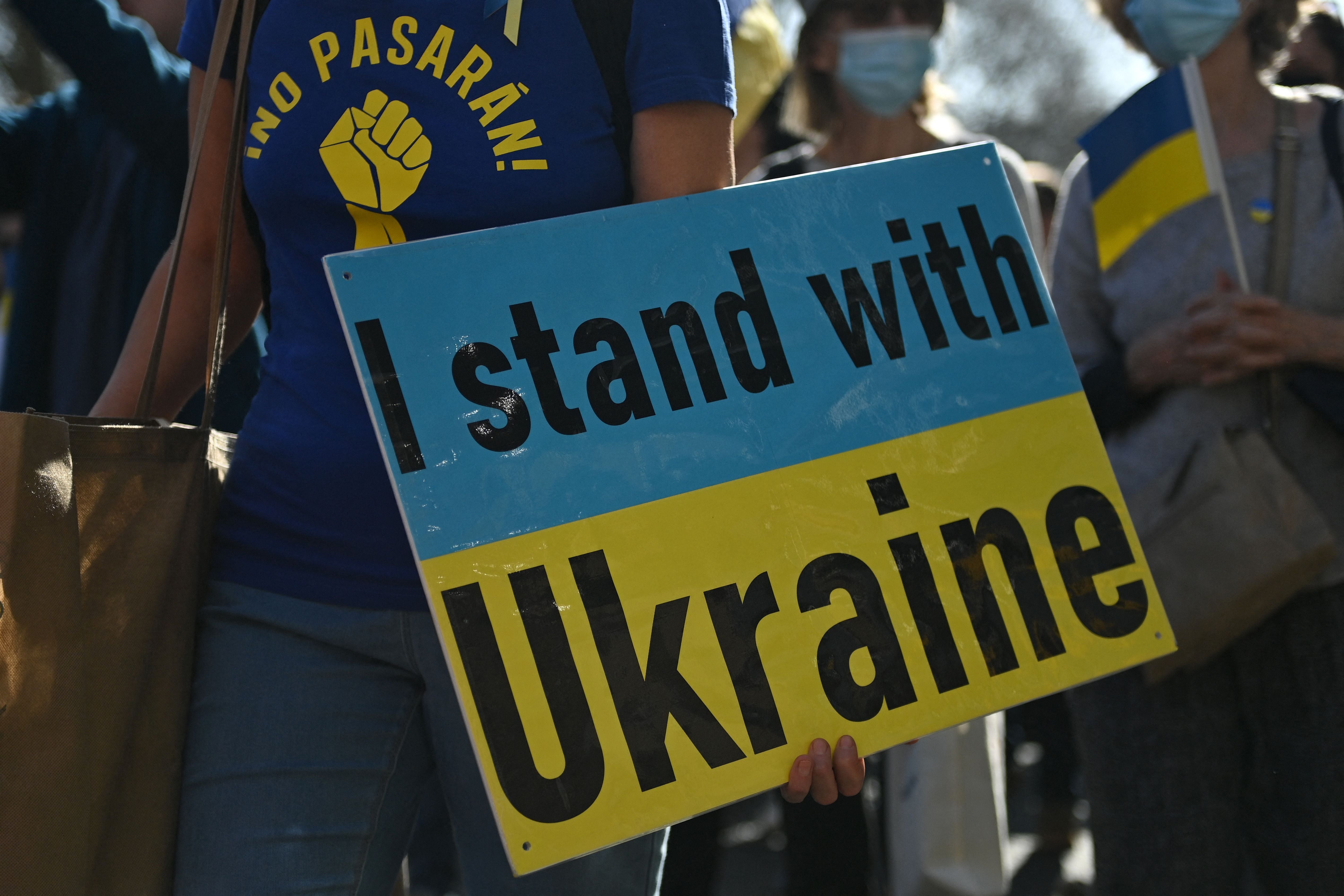
Councils have been flooded with bogus Ukraine refugee sponsorship offers and basic vetting checks have been missed putting refugees at risk of exploitation, a charity has warned.
Half of all applications received by one London council were false while others were left scrambling to check the details of people who didn’t exist after government officials failed to verify prospective sponsors, a review has found.
In one case, a council’s Homes for Ukraine (HfU) response team was sent to a kebab shop after fake addresses were given on the government’s expression of interest form. Another council had “Mickey Mouse” and “Vladimir Putin” sent as potential sponsors, while some refugees handed over tens of thousands of pounds to scammers.
The report by migrants’ charity Work Rights Centre will be published on Tuesday but an extract shared exclusively with The Independent reveals that the Home Office had in some cases issued visas for Ukrainians before councils had time to conduct proper safety checks.
The data and communication issues made exploitation a very real prospect for Ukrainians who arrived under the scheme, the charity said.
Lisa Nandy MP, shadow levelling up, housing and communities secretary, said that government ministers were warned before its launch that a “DIY” Homes for Ukraine scheme would not be good enough.
“They ignored calls for the government to play a role matching sponsors and refugees and in enforcing safeguards to protect vulnerable people,” she said.
“This report lays bare the shameful consequences of the government’s failure to properly play its part,” Ms Nandy added.
The latest Home Office data on 15 December, showed 253,700 applications have been received, and 206,700 visas were granted under the Ukraine schemes. Of these, 175,000 were made and 145600 were issued under HfU.
The report, titled On the frontline: London councils’ responses to the humanitarian crisis in Ukraine, drew from in-depth interviews with response teams from 12 council areas in London, which between them oversaw 36 per cent of HfU arrivals in the capital.
Local authority officers shared disturbing examples of Ukrainian families who, eager to be matched with a sponsor as soon as possible, had fallen victim to scammers. One interviewee said: “A family paid £55,000 to someone in the UK who promised them a visa and a house.
“The same thing happened to their cousin. Another person paid £2,000 for a visa, and was asked for £1,000 on arrival. We had to step in and stop it.”

Without robust controls, any user with malicious intent could submit a fake expression of interest to the Department for Levelling Up, the report found.
One local government official told researchers: “At some point, there were so many applications, I thought it was Russian bots.
“The so-called sponsor entries were noisy, email addresses were not real and the addresses used were often businesses ... It got to a point where we were asked to go out and visit these addresses which included a smoke shop, or a kebab shop.”
They continued: “In the end, over half of the entries turned out to be completely false.”
The percentage of viable hosts was much lower than the initial pool of interest, with one council estimating that “fewer than 10 per cent of sponsors who express interest actually respond”.
There were also cases where real sponsors, who had volunteered to host one family, had their information used on multiple visa applications.
The report also found Home Office had often granted visas before sponsors had been properly checked, causing significant safeguarding concerns.
In some cases, after sponsorship checks had failed, councils found the application had already been approved and the refugee had already arrived in the country.
In at least one instance, a council had to stop a sponsorship arrangement when it came to light that the host had a criminal record.
“We have had to move a woman because of a sponsor’s DBS record,” they said. “In other cases, visas are issued for children before they are issued for parents, and the system looks like the children have left – then we call Ukraine to speak to the parents because we have interpreters, and find out that isn’t the case.”
Adis Sehic, a co-author of the report, said it was clear that there was a “longer-term tension at play here between councils dealing with increased duties and responsibilities while facing diminishing resources at the same time”.
“The potential exploitation of Ukrainians highlighted by our research indicates that there has been a lack of strategic coordination at the level of central government departments, namely DLUHC and the Home Office, meaning that visa processing has been out of sync with local authority checks.”
Georgia Gould, chair of London Councils, said: “Councils have faced – and continue to face – immense challenges, including in verifying information, ensuring arrivals are safeguarded, and securing appropriate accommodation for Ukrainians when their hosting arrangements come to an end.”
A spokesperson for mayor of London Sadiq Khan said the report “rightly highlights that the design of this scheme left Ukrainians at risk”.
“Local government and charities were forced to step in to ensure it was workable, and did an incredible job to meet the needs of thousands of Ukrainians in need of sanctuary,” they added.
A government spokesperson said: “The Home Office only issues visas once robust checks have been completed. Councils are then required to conduct in-person welfare checks once a Ukrainian has arrived, and are alerted as soon as an application is made to complete DBS checks on all individuals in a sponsors’ household.”
A government spokesperson added that it is “our priority has been to ensure those in danger can reach safety as quickly as possible”.







